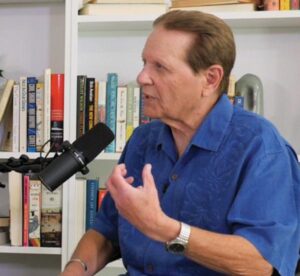Excerpt from SCIENCE AND REVOLUTION, On the Importance of Science and the Application of Science to Society, the New Synthesis of Communism, and the Leadership of Bob Avakian, An Interview with Ardea Skybreak
A Scientific Outlook, A Boundless Curiosity About the World
In the early part of 2015, over a number of days, Revolution conducted a wide-ranging interview with Ardea Skybreak. A scientist with professional training in ecology and evolutionary biology, and an advocate of the new synthesis of communism brought forward by Bob Avakian, Skybreak is the author of, among other works, The Science of Evolution and the Myth of Creationism: Knowing What’s Real and Why It Matters, and Of Primeval Steps and Future Leaps: An Essay on the Emergence of Human Beings, the Source of Women’s Oppression, and the Road to Emancipation. This interview was first published online at www.revcom.us.
Question: Well, you just touched on something I wanted to ask you about. Very frequently the way science is portrayed and is viewed–and I think this relates to the point that you were just making about science being portrayed as the province of the elite–it’s also often portrayed as cold, boring, lifeless, dry, maybe even some people think of it as being dogmatic or rigid, or something a relatively small number of people are practicing, kind of cut off from the world. And so I wanted you to respond to that view and portrayal of science.
AS: Oh boy, don’t get me started! [laughs] I mean, at the risk of sounding ridiculous, some of the most passionate and lively people I’ve ever known have been scientists, including in the natural sciences. Science itself is not…how can anybody think of it as being dry or lifeless, or whatever, when the whole point of science is to have boundless curiosity about the world, about everything, about the way things came to be. Where did we come from? Where did life on earth come from? How did it come together? Why is this bird building its nest in this way in this tree and what is it doing? And what is this cat doing running across the road? I’m not trying to get into a lot of questions right now, but the point is that a good scientist is constantly asking questions about everything. It’s what is often so wonderful about little kids, how little kids want to know everything about everything: why is this like this, why is this like that, how did it come to be that way, what is this? And so on. And unfortunately that natural scientific curiosity that pretty much every kid has, often gets kind of sucked out them, beaten out of them–if not physically then just through the stultifying educational system, and through the way this society is, and what it encourages and discourages.
Why do so many people think of science as something scary or dry or lifeless? Frankly, it’s for a number of reasons. One, they often haven’t been taught correctly in schools what science is. Science is sometimes taught as if it’s just a bunch of dry precepts or formulas–just a bunch of end-point conclusions people are supposed to remember–but that’s not science. Science is a process. It is a lively method of investigation. Think of science as a way that allows you to ask a whole lot of questions, about everything and anything, and that gives you a method and approach to enable you to systematically and methodically investigate things, to act sort of like a detective out in the world, to deeply investigate natural reality, or social reality. There’s nothing lifeless about it! It’s all about trying to understand things, including because of the basic principle that if you want to change anything you’d better first understand it, and not understand it just in a superficial way. You need evidence, accumulated over time, and not just in scattered little bits and pieces. You need to discover the patterns, including the patterns of how things relate to each other: If you want to understand the interactions between, say, oak trees and the squirrels that disperse their acorns; or between some of the flowering plants and the bees or butterflies or birds or even monkeys that may act as their pollinators; or between sharks and their prey, just to use a few examples–if you want to understand any of this, you need to uncover the evidence of the underlying patterns and the underlying dynamics and you need science to do this. Life is full of dynamic interactions–not just in that broader natural world, but in the human social world as well. So if you want to change anything, you first really have to understand why things are the way they are, how they came to be that way, and which way they are moving. And if you don’t like the way it’s going, and it has to do with human society, then do something about it, by using human conscious influence to try to change the course or direction of things. That’s what gets done whenever scientists come up with a cure for a disease, or figure out something like how a badly damaged river ecosystem might be reinvigorated by periodically releasing water from the dam that caused all the damage.
Well, these are some examples of science applied to the natural world, and I could give you millions of similar examples. Science is all about understanding the nature of things, understanding patterns, and understanding transformation–the way things get transformed even on their own, how things move, thanks to their internal dynamics and the effects of outside influences…you see, everything is always moving, material reality is always moving. Whether you’re talking on the scale of the cosmos, the planets, the galaxies, or whether you’re talking, on a more micro scale, about ants in an anthill or cells in your body or subatomic particles, everything in material reality is always moving and changing, nothing ever stands still. And when it comes to social life, human beings should be using the same methods of science to understand how societies got to be the way they are, and to analyze–scientifically–what’s wrong with them; to analyze–scientifically–how could they be better; and to determine what would be a strategy for moving in the right direction–again, on a scientific basis.
Another reason people are sometimes turned off by science is because there has been bad science. There will always be “science” that’s misused and misapplied, you know, but it’s bad science, OK? For instance, take examples about the way sometimes in the course of history science has been used to promote the idea that some races are inferior to other races, are mentally inferior, or something like that. Well, that’s junk science. In fact you can use rigorous scientific methods to prove that that was all bad science. It’s not just “morally” bad–it is that, but it’s also scientifically bad–it’s completely false and you can use good science to prove that.



